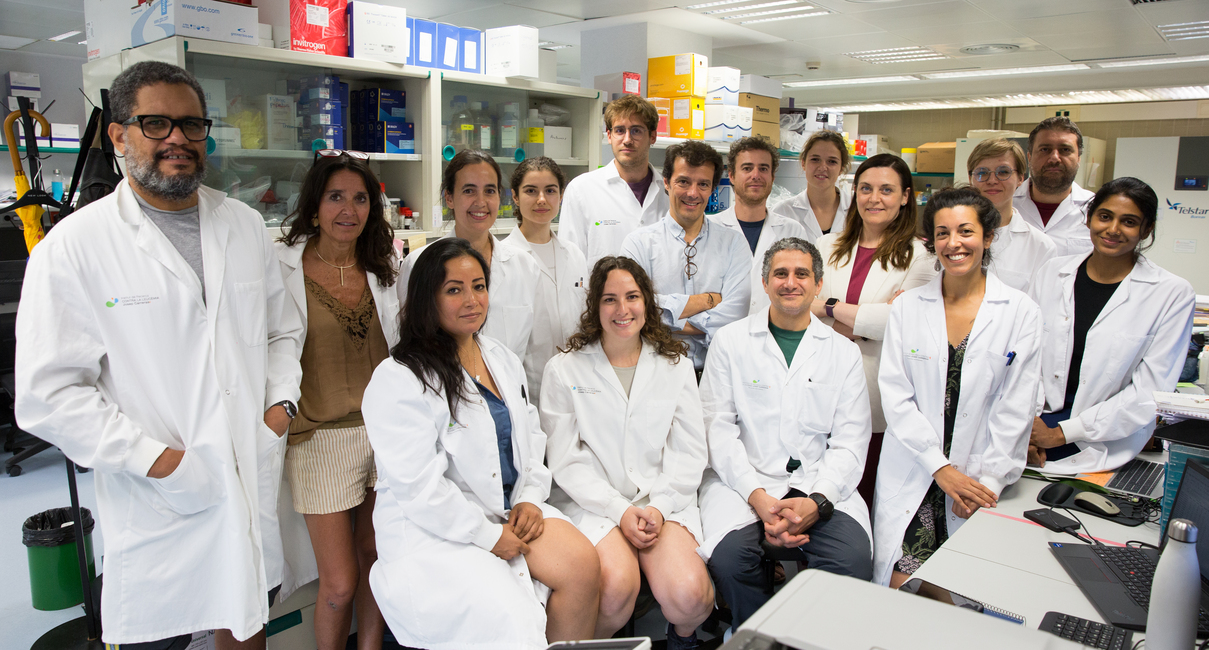New research programme to tackle childhood leukaemia at the Josep Carreras Institute
The new location of the Josep Carreras Leukaemia Research Institute will be based at Sant Joan de Déu and will focus on research into paediatric leukaemia. This new programme is the result of an agreement between the Institute, the Josep Carreras Foundation, and the Sant Joan de Déu Research Institute, which will enable the development of joint institutional strategies and initiatives, and promote collaborative research in all its phases.

The Josep Carreras Leukaemia Research Institute (IJC), the Josep Carreras Foundation (FJC), and the Sant Joan de Déu Research Institute (IRSJD) have agreed to develop a joint research programme on childhood leukaemia. With this initiative, the IJC will open its sixth location, joining the existing ones: IJC-Can Ruti, IJC-Sant Pau, IJC-Clínic, IJC-Mar, and IJC-Josep Trueta.
The Josep Carreras Foundation will fund the adaptation of spaces provided by the IRSJD and the purchase of equipment. It will also finance the creation of four IJC research teams that will be located in these facilities. Sant Joan de Déu, through its SJD Pediatric Cancer Center Barcelona (PCCB) and thanks to a significant legacy from Carlos Parrera Casanovas for paediatric cancer research, will contribute by funding four additional research teams, providing 300 square meters for laboratories, and granting access to all its clinical activities.
Paediatric leukaemia is the most common cancer in children. While 80% of patients achieve remission, some suffer long-term effects. The remaining 20% do not survive, making research crucial. Treating relapses requires more personalised and advanced therapies, which still need significant resources to be effective. Current research focuses on understanding the molecular mechanisms behind resistance to conventional therapies to better treat relapsed patients.
Due to its relatively low incidence, charitable organisations must concentrate their efforts on discovering the disease's origins, improving treatments, and ensuring survival free of side effects.
According to Dr Pablo Menéndez, Scientific Coordinator of the programme and Group Leader at the Josep Carreras Institute, "this alliance will enable the development of common strategies, joint institutional programmes, and shared initiatives to foster collaboration among basic, translational, and clinical researchers, covering all phases of research from lab work to patient application."
The agreement aims to promote collaborative research at the Josep Carreras Institute among these professionals and to support their training. It will also facilitate access to scientific platforms and the joint development of new ones.
With this agreement and the establishment of a new location at the Sant Joan de Déu facilities, the Josep Carreras Leukaemia Research Institute will join the strategic research, technology, and innovation network in paediatrics known as the “PReTI Alliance” (Paediatric Research Technology and Innovation alliance), led by the IRSJD.
The agreement was signed by Josep Carreras, President of the Josep Carreras Leukaemia Foundation and President of the Board of Trustees of the Josep Carreras Leukaemia Research Institute; Joan Comella, Director of the Sant Joan de Déu Research Institute; and Manel del Castillo, Managing Director of Sant Joan de Déu Hospital in Barcelona.
According to Josep Carreras, “this alliance will boost the important scientific research being carried out by the three institutions. We continue to make progress every day in leukaemia research, and this collaboration helps us combine efforts in developing clinical, translational, and basic research projects."
Joan Comella added, “this new research location, integrated within the SJD Pediatric Cancer Center Barcelona and linked to our PReTI alliance plan, strengthens our strategic commitment to building a network of knowledge, technologies, and talent in support of excellent paediatric research. At the Sant Joan de Déu Research Institute, we are proud to be part of this alliance between two major research institutes to jointly fight leukaemia and positively impact children's health.”
Paediatric Haematopoietic Tumours
Each year, around 1,200 new cases of childhood cancer are diagnosed in Spain.
Projections for 2025 estimate 445 new cases of childhood hematologic neoplasms in Spain (287 childhood leukemias and 158 childhood lymphomas), according to the Spanish Cancer Registry Network and the Spanish Society of Hematology.
Leukemia involves the uncontrolled proliferation of abnormal blood cells. These cells infiltrate the bone marrow, hinder the production of normal cells, and invade the bloodstream and other organs.
Acute lymphoblastic leukemia (ALL) accounts for 80% of leukemias and is a cancer formed by immature lymphocytes, known as lymphoblasts. These cells prevent the growth of other blood cells. Lymphocytes are a type of white blood cell and can be either B or T cells. Depending on whether the lymphoblasts originate from B or T cells, the disease is classified as B-ALL or T-ALL.